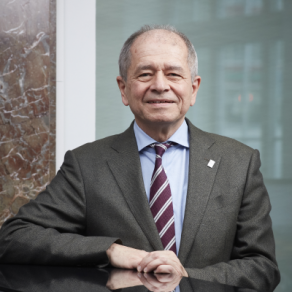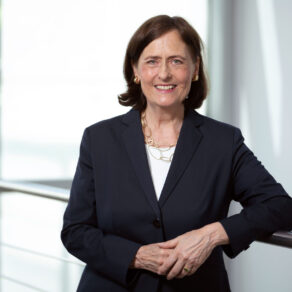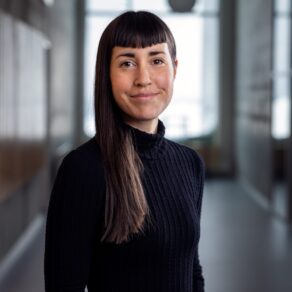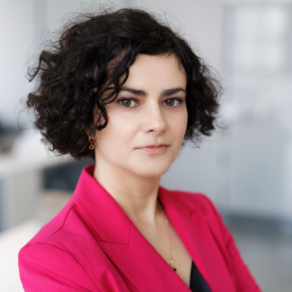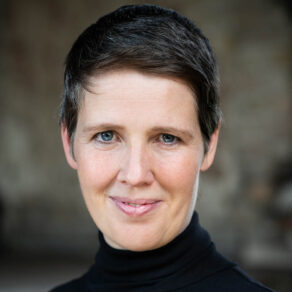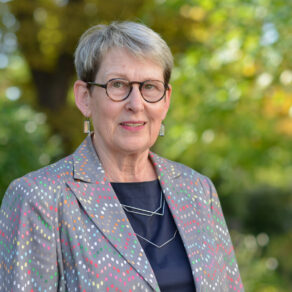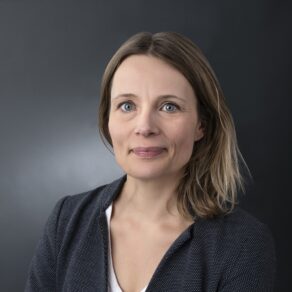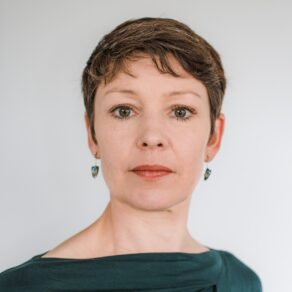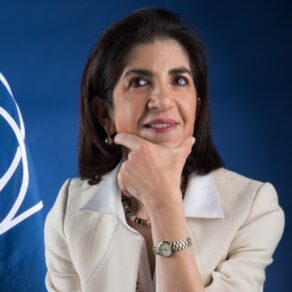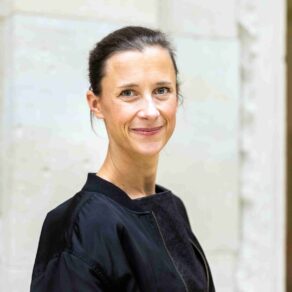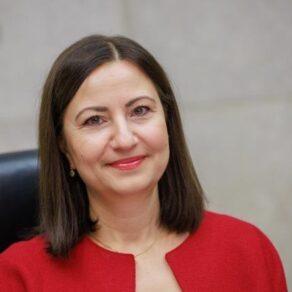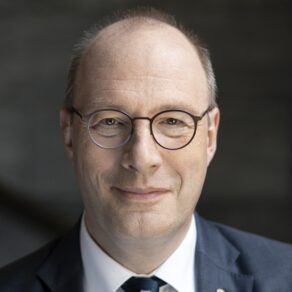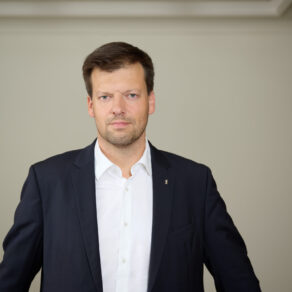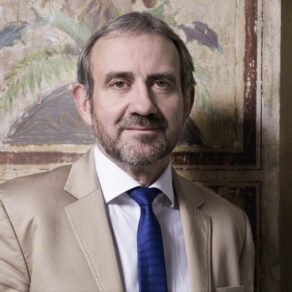Katja Becker
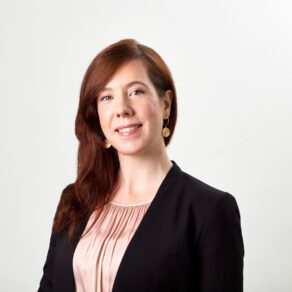
Olivia Denk
Olivia Denk (Swiss Academies of Arts and Sciences) is a specialist in Open Science and leads the open research data unit at the Swiss Academies of Arts and Sciences in Bern. In this role, she is responsible for implementing the Swiss National Open Research Data Strategy on behalf of her organisation. Since 2023, she has served as co-coordinator of CoARA’s National Chapter Switzerland.
Aviâja Lyberth Hauptmann
Assoc. Prof. Aviâja Lyberth Hauptmann is an Inuk microbiologist from Greenland, specializing in Arctic foodways and microbiology. She is an associate professor and head of department at Ilisimatusarfik – the University of Greenland, where she has developed and now leads the SILA Bachelor’s in Biology Program. She also holds a part-time assistant professorship at the University of Copenhagen, Globe Institute.
She has held positions as an assistant professor at Ilisimatusarfik and as a postdoctoral fellow at the University of California, Davis, where she collaborated on research and teaching around the microbiology of Indigenous Greenlandic fermented foods.
Assoc. Prof. Hauptmann’s work emphasizes the significance of traditional animal-source Inuit foods in understanding human-microbe interactions and promoting food sovereignty. She has been an active public debater for more than a decade, currently focusing on Indigenous food systems and the role of Indigenous peoples in science. Her work not only advances scientific understanding of Arctic microbiology but also bridges cultural and societal aspects, promoting the integration of Indigenous knowledge into scientific research.
“For those of us who live in the Arctic, it is increasingly clear that science is diplomacy. In a time where the mantra of Greenland’s government as well as our national research strategy is ‘Nothing about us without us’ it will be the scientific communities who manage to build equitable and long-term relations with Arctic collaborators who can do science in the Arctic.”
Monika Szkarłat
Monika Szkarłat (PhD) is a specialist in international relations and a researcher at the Institute of Political Science and Administration, as well as the head of a research team at the Centre for Artificial Intelligence and Computer Modeling, Maria Curie-Skłodowska University in Lublin, Poland. She holds a degree in intellectual property law from the Faculty of Law and Administration at Jagiellonian University in Kraków.
Dr. Szkarłat is a delegate to the Board of the Polish Polar Consortium, a member of the Presidium of the Committee on Polar Research at the Polish Academy of Sciences, and vice-chair of the Social & Human Working Group of the International Arctic Science Committee. She is also actively engaged in ICARP IV as a member of RPT4 (Diplomacy and Scientific Collaboration).
Her research focuses on the intersection of science and policy, particularly science diplomacy in the Arctic and the EU, as well as the legal and social dimensions of artificial intelligence and biotechnologies.
“International research collaboration has long been fundamental to the Arctic, providing essential knowledge on natural phenomena and their socio-economic implications while informing decision-making at national and international levels. During periods of geopolitical tension, science has also functioned as a track-two diplomacy platform, maintaining dialogue when political channels were closed. Yet, science, along with its products—technologies and innovations—can also be a source of power, competition, and even coercion. While the relationship between science and politics can be mutually beneficial, science must safeguard its integrity, resisting politicization and instrumentalization to ensure its role remains independent and constructive in Arctic governance.”
Lise Øvreås
Prof Lise Øvreås – serves as a Vice-President (Environment Programme; External Stakeholders and Partner Engagement) of EASAC from 2024–2026. She is a professor in Geomicrobiology at University of Bergen, Norway. Former President of the Norwegian Academy of Science and Letters in Norway (DNVA). She has been active in working with science for policy in the Arctic and in EU, though Science advice committee at DNVA and EASAC. From 2019 – 2022 she was the director for Ocean Sustainability Center at University of Bergen, a strategic tool to provide research and meeting place for a sustainable ocean. She is also part of the Norwegian UN Ocean National Committee. She has been an active researcher within Arctic research for the last 25 years, attending research cruises and fieldwork, studying biodiversity and the effect of climate change. She held an associate professor position at University center in Svalbard (UNIS) for 8 years, teaching Arctic microbiology. She is particularly interested in the effect of thawing permafrost and climate gas emissions. She is also engaged in implementing artificial intelligence in Arctic fieldwork and “smart sampling”.
“Science and diplomacy have long been central to Arctic governance, fostering cooperation in a region that is ecologically fragile and geopolitically significant. Loss of data following Russia’s war on Ukraine, Trump administration’s cuts to research and retreat from multilateralism, and increasing investment of non-Arctic states in Arctic research are altering the foundations of scientific collaboration and diplomacy. These disruptions undermine science-informed decision-making and international cooperation, particularly in climate and biodiversity research, social science, and ocean studies. Thus, revitalizing Arctic science diplomacy is essential—not only for the region but for addressing broader planetary challenges, from climate change to security and resource management.”
Viola Priesemann
Prof Dr Viola Priesemann is a Board Member of “Die Junge Akademie”, professor of Physics at the Georg-August University and group leader at the Max-Planck-Institute for Dynamics and Self-Organisation in Göttingen. She is a member of the Board of the Campus Institute for Data Science, the Cluster of Excellence ‘Multiscale Bioimaging’, the Göttingen Academy of Sciences and Humanities. Her research focuses on living and artificial neural networks, carving out the basic mechanisms of self-organisation, learning, and efficient coding.
During the Covid-19 pandemic, she brought together and coordinated a transdisciplinary team of researchers to develop coordinated mitigation strategies. This team published several papers in The Lancet, including a practicable, transdisciplinary ‘Action Plan for Pan-European Defense against new SARS-CoV-2 variants.’ Within integrating researchers from small countries and disciplines this endeavor reflects the very values of European unity, transdisciplinary research, and the promotion of an open and inclusive science advancement in Europe.
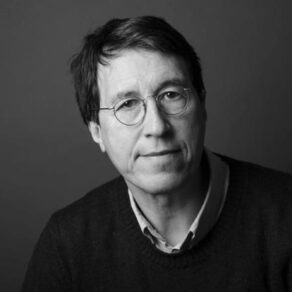
Minik Thorleif Rosing
Prof. Minik Thorleif Rosing (Greenland/Denmark) is a world-renowned geologist from Greenland. Among many titles and accomplishments, he is a professor of geology at the University of Copenhagen, previous leader of Danish ship-based scientific research expedition Galathea 3, and one of the artists behind Icewatch—a series of melting glacier ice blocks positioned in clock-formation outside notable places of governance.
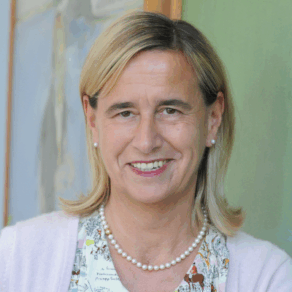
Annette Grüters-Kieslich
Prof. Annette Grüters-Kieslich (Leopoldina and The Union of German Academies of Sciences and Humanities) is ALLEA Vice-President and Board Member.
Annette Grüters-Kieslich is professor of pediatrics and has made important scientific contributions to the field of endocrinology. Her work has provided significant insights into the molecular pathogenesis in rare congenital developmental disorders of the endocrine system and the pathophysiology and treatment of rare forms of childhood obesity. She currently focuses her research on the transcriptional and epigenetic regulation of important genes in human development and on studies of the structure and function of G-protein coupled receptors.
She has been actively involved in the improvement and development of scientific structures and careers paths in biomedicine as Vice-President of the Berlin-Brandenburg Academy of Sciences and member of Leopoldina and as Dean of the Medical Faculty at the Charité in Berlin. She is a dedicated European citizen and was member of the council of European societies for endocrinology and of the medical board of Science Europe.
Her portfolio includes legal and local affairs, overseeing tasks related to ALLEA’s legal status and seat in Germany, maintaining connections with German member academies and the ALLEA secretariat, and managing relationships with other local, regional, and national stakeholders. She also provides support to the ALLEA President in his role as treasurer and advises the secretariat concerning requirements and procedures related to tax declarations, financial reporting, and auditing. Additional responsibilities include a leading role in fundraising efforts in Germany, overseeing Equity, Diversity, and Inclusion (EDI) activities and transformation processes within academies.

Paweł Rowiński
Prof. Paweł Rowiński (Polish Academy of Sciences) is ALLEA President.
Paweł Rowiński holds a degree in mathematics by the University of Warsaw, and doctoral and habilitation degrees in earth sciences with a specialisation in geophysics by the Institute of Geophysics, Polish Academy of Sciences. Among others, his research interests include mathematical methods in geophysics, geophysical flows, river hydrodynamics, and fluvial hydraulics. Paweł Rowiński has published more than 160 refereed scientific publications. He serves as Associate Editor for several prominent scientific journals and publications. In 2018 he was elected the Vice Chair of the Europe Division Leadership Team of the International Association for Hydro-Environment Engineering and Research (IAHR).
Between 2018 and 2024, Professor Rowiński was a member of the ALLEA Board before assuming the position of ALLEA President in June 2024.
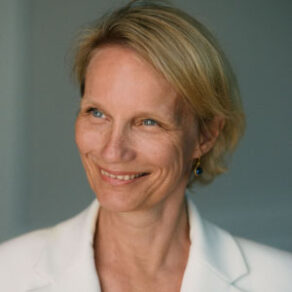
Marie Louise B Nosch
Prof. Marie Louise B Nosch (Royal Danish Academy of Sciences and Letters) is ALLEA Vice-President and Board Member.
Marie Louise B Nosch is Danish and born in 1970. She studied Ancient Greek History in Nancy (France) and in Napoli (Italy), and completed her doctoral thesis in Salzburg (Austria). Her special field of research is Aegean epigraphy and Mycenaean Linear B inscriptions, as well as ancient textile production. She was the Director of the Danish National Research Foundation’s Centre for Textile Research (2005-2016) at the University of Copenhagen, and she is Professor of Ancient Greek History in the University of Copenhagen (2009- ). In 2018, she co-founded a talent and excellence programme for young and mid-career scholars in the same university. She has been a member of the Royal Danish Academy of Sciences and Letters since 2017 and served as President between 2020-2024.
Her science-policy portfolio includes leading efforts to restructure ALLEA’s science-policy work, overseeing ALLEA’s activities related to the European Research Area and Framework Programmes, and supporting other science-policy initiatives, such as academic freedom, research culture, and Open Science. Additional responsibilities include co-representing ALLEA in Brussels and contributing to matters related to support for Ukraine (jointly with the ALLEA President).
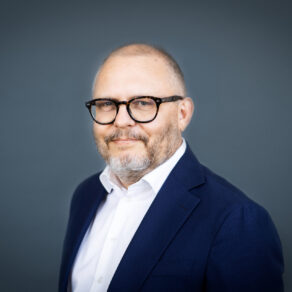
Nils Agerhus
Nils Agerhus is the Director General at the Ministry of Higher Education and Science, a position he has held since 2017. He previously served as Director at the Agency for Higher Education (2013–2016), and held several leadership roles within the Ministry, including Head of Department (2009–2013) and Head of Division (2001–2009). Prior to that, he was Head of Division and Advisor at the Ministry of Enterprise (1992–2001). He began his career as a project worker at the Aalborg Trade Council (1990–1992).
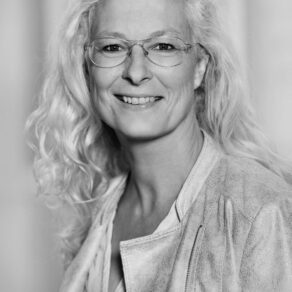
Susanne Ditlevsen
Susanne Ditlevsen is a professor of statistics at the University of Copenhagen and President of the Royal Danish Academy of Sciences and Letters. Her research spans theoretical and applied statistics and mathematics, with a focus on stochastic processes, nonlinear dynamics, and mathematical modeling in biology. Her interdisciplinary work has applications in climate science, ecology, and neuroscience.
She gained international recognition for a 2023 Nature Communications on the potential collapse of a major Atlantic Ocean current due to climate change—a study that garnered global media coverage.
Susanne holds degrees in mathematics and statistics and a PhD in biostatistics from the University of Copenhagen. Beyond academia, she has a background in acting and theatre, and frequently contributes to public science communication in major media outlets.

Ewa Dębska
Ewa Dębska is a Polish diplomat and philologist, currently serving as Chargé d’affaires a.i. and Head of Mission at the Embassy of Poland in Denmark since October 2024. A graduate in Danish Philology from Adam Mickiewicz University, she began her career as a translator and lecturer before joining the Ministry of Foreign Affairs in 1999.
Her diplomatic career includes postings in Denmark, Sweden, and Latvia, where she served as Ambassador to Latvia (2015–2017). She has held various roles in the Ministry, primarily focused on European policy and regional cooperation, especially with the Nordic, Baltic, and Visegrad countries. She has also represented Poland in the EU Strategy for the Baltic Sea Region and the Council of the Baltic Sea States.
Ewa Dębska is a career diplomat and civil servant, awarded the Golden Cross of Merit (Poland) and the Order of the Cross of Terra Mariana (Estonia). She speaks Danish, English, and German.

Matthias Kiesselbach
Matthias Kiesselbach is Director of the division “Research Culture” in the German Research Foundation (Deutsche Forschungsgemeinschaft, DFG). Among other things, he coordinates DFG’s membership in CoARA. Together with his colleague Dr Anna Christa, representatives of the EU Commission and the Swedish Knowledge Foundation, Matthias currently co-chairs the CoARA Working Group “Improving Practices in the Assessment of Research Proposals”
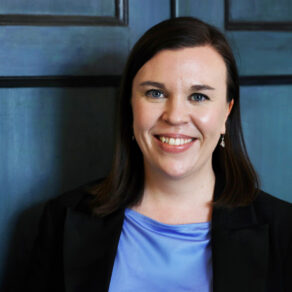
Mira Söderman
Mira Söderman is Coordinator on Responsible Assessment at the Federation of Finnish Learned Societies. She coordinates the Steering Group and Working Group on Responsible Assessment, as well as the Finnish National CoARA Chapter. She holds a PhD in Political Science.
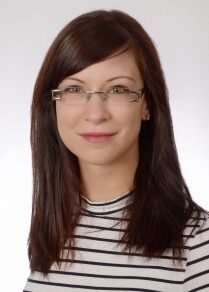
Erzsébet Tóth-Czifra
Since May 2023, Erzsébet has been the Programme Manager of CoARA. She is responsible for the day-to-day operations of the Coalition and coordinates the CoARA Boost Horizon project. Erzsébet has a solid background in Open Science and research assessment in the Arts and Humanities disciplines.
Before joining CoARA, she was the first Open Science Officer for DARIAH-EU where she promoted and implemented policies and practices related to the open dissemination of research results, such as OPERAS-P and PALOMERA.
Erzsébet obtained her PhD in Cognitive Linguistics at the Eotvos Lorand University, Budapest. In recent years, her professional interests and publication activities have been shifting towards the study of data sharing, publication and evaluation practices, such as FAIR data in the Humanities, quality assessment of innovative scholarship in the Social Sciences and Humanities and evaluation and peer review challenges around Virtual Research Environments.
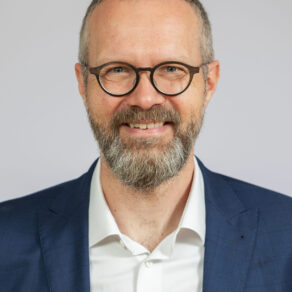
Birger Larsen
Birger Larsen (Aalborg University) has a passion for research that involves the activities, processes, and experiences arising in the meeting between users, information, and information systems in a given context – with the goal of optimising these to empower users in their task and problem-solving. His main research interests include Information Retrieval (IR), user interaction, information behaviour, domain specific search, understanding user intents and exploiting context in IR – all of these with a view to inform interaction design and user experience (UX), as well as Informetrics/Bibliometrics, citation analysis and quantitative research evaluation – and recently computational methods applied to Social Sciences and Humanities (SSH), where he investigates the new possibilities and challenges arising from the application of large-scale data collection and analysis techniques and AI to SSH research.
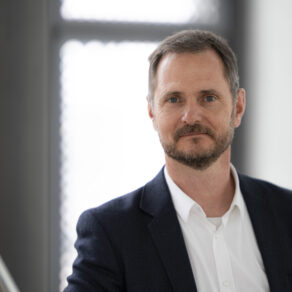
Søren Serritzlew
Søren Serritzlew is the Chair of the Board of Independent Research Fund Denmark (DFF). He was a member of Independent Research Fund Denmark’s academic research council DFF | Social Sciences from 2018-2023. He is also a professor at the Department of Political Science at Aarhus University.
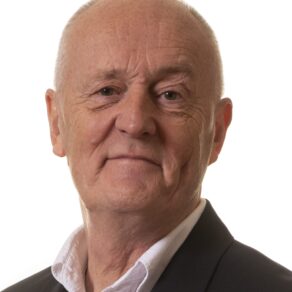
Alan Irwin
Alan Irwin is a professor in the Danish Centre for Studies in Research and Research Policy, Aarhus University, and in the Department of Organization, Copenhagen Business School. He is also a Distinguished Affiliated Professor at the Technical University of Munich (TUM). He chairs the Royal Danish Academy of Sciences and Letters committee on ‘science in society’. Alan Irwin’s academic work focuses on issues of science and technology policy, scientific governance, citizen science and science-public relations. He was a member of the working group which produced the SAPEA evidence review report on ‘Making sense of science for policy under conditions of complexity and uncertainty’ (2019).
Ulla Bonas
Nienke Buisman
Janneke Gerards
Fabiola Gianotti
Valeska Huber
Iliana Ivanova
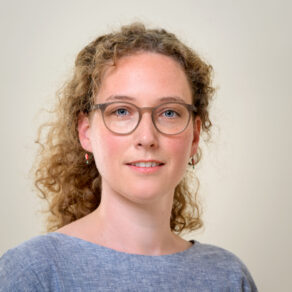
Lara Keuck
